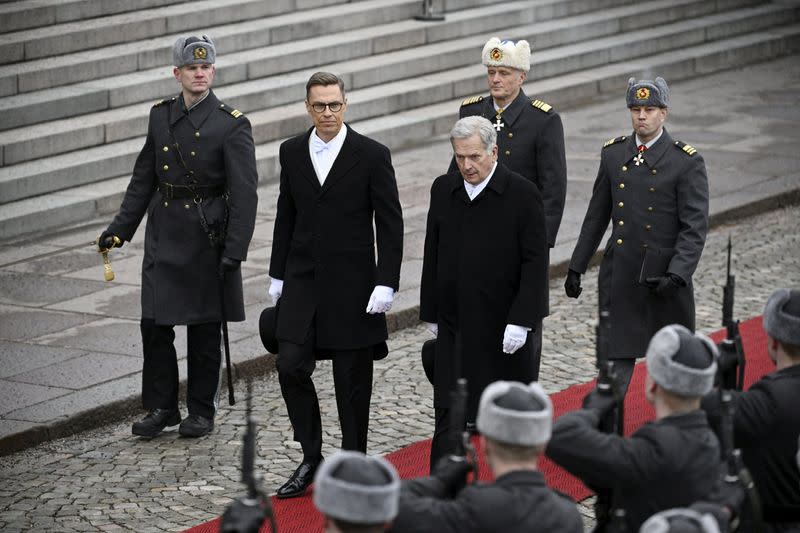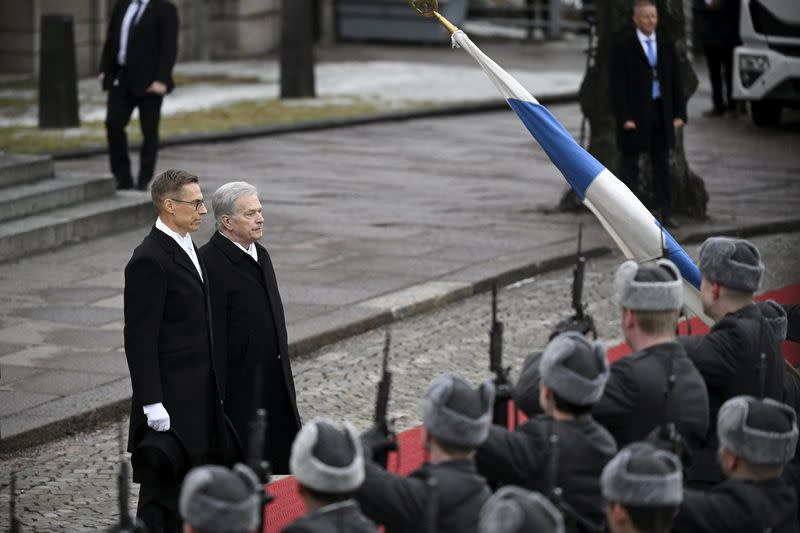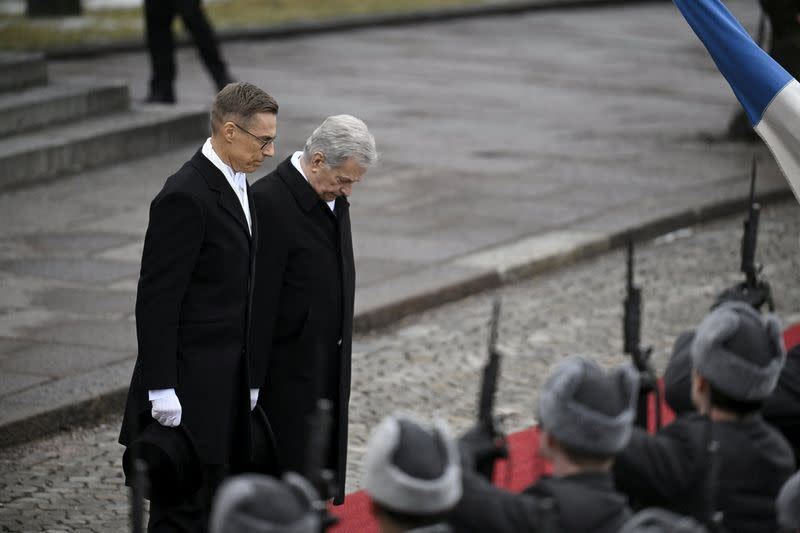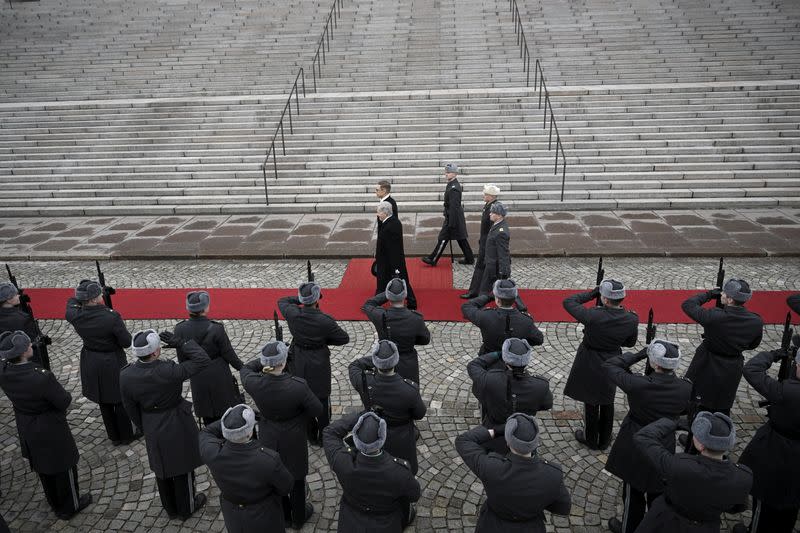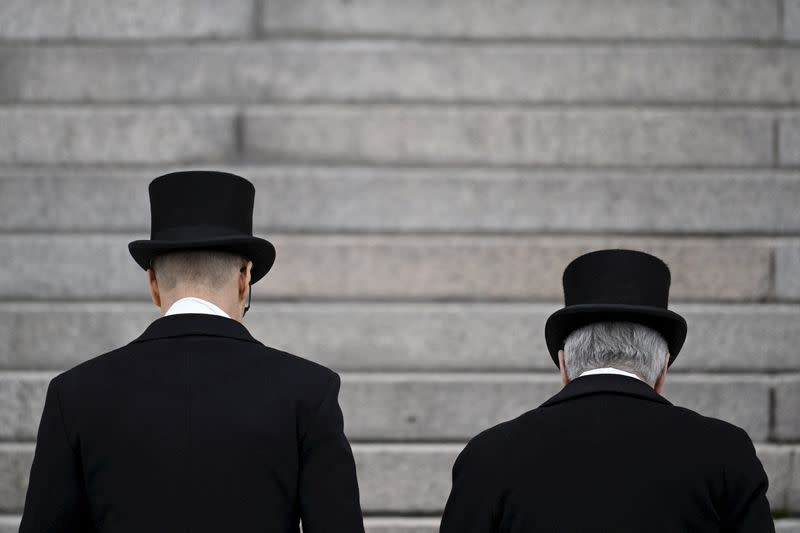NATO's nuclear deterrent must be real for Finland, says new president
- Oops!Something went wrong.Please try again later.
By Anne Kauranen
HELSINKI (Reuters) -NATO'S nuclear deterrent must be real for Finland, the country's president Alexander Stubb said on Friday as he took office following his win in a close-fought election on Feb. 11.
During his campaign ahead of the vote, Stubb said he saw no limits for Finland's participation in NATO and would be ready to let nuclear weapons be transported through Finland - though not stored there - as the country abandoned decades of military non-alignment.
When asked about his views on nuclear weapons at his first news conference as president, Stubb said it would be for the Finnish government and parliament to decide if Finland wants to alter its current legislation that bans nuclear weapons on Finnish soil, including their transfer.
"I would start from the premise that we in Finland must have a real nuclear deterrent, and that's what we have, because NATO practically gives us three deterrences through our membership," Stubb told reporters.
"The first is military, i.e. soldiers, the second is missiles, i.e. ammunition, and the third is a nuclear deterrent, which comes from the United States," he added.
At his official inauguration in parliament, Stubb said he stood ready to oversee a new era after Finland joined NATO in response to neighbouring Russia's invasion of Ukraine.
"We are now facing a new era. As a result of our military alignment and NATO membership, we have taken the final step into the Western community of values, where our republic has spiritually belonged throughout its independence," Stubb said in his address to parliament during the inauguration.
Stubb listed democracy, rule of law and human rights as the core values that Finland's foreign policy would be based on under his leadership.
Stubb replaces outgoing president Sauli Niinisto, who steps down after two six-year terms in which he earned the nickname "the Putin Whisperer" for his previous close ties with the Russian leader.
A day before Stubb's inauguration, Putin said Russia must boost the troops it has deployed along its western borders with the European Union in response to Finland and Sweden joining NATO.
Stubb condemned the recent death of Russian opposition leader Alexei Navalny, whose funeral took place in Moscow the same day, and called for Russian leadership to take responsibility for his "political murder".
"Navalny's death is a kind of symbol of the state Russia is in at the moment. Human life does not seem to have any kind of significance to the current Russian leadership," Stubb said.
(Reporting by Anne Kauranen in Helsinki and Louise Breusch Rasmussen in Copenhagen; Editing by Alison Williams, William Maclean)
